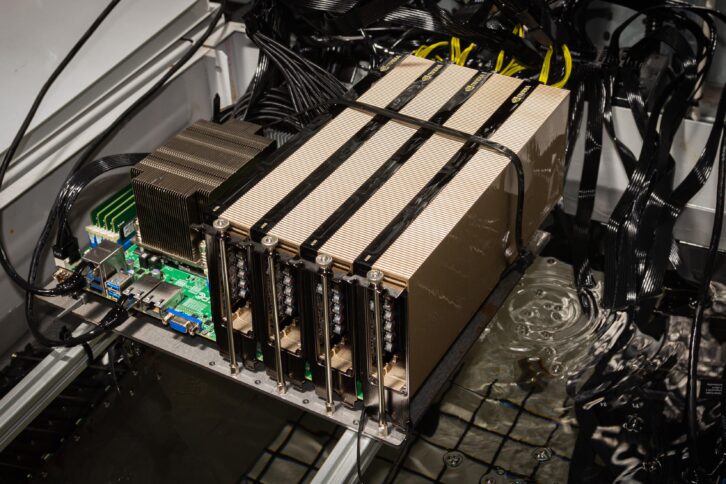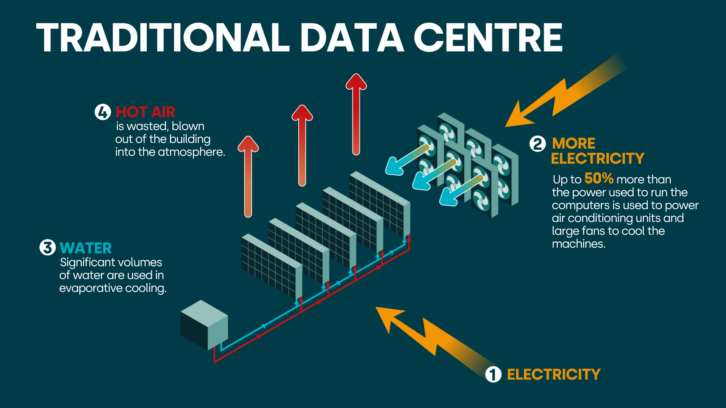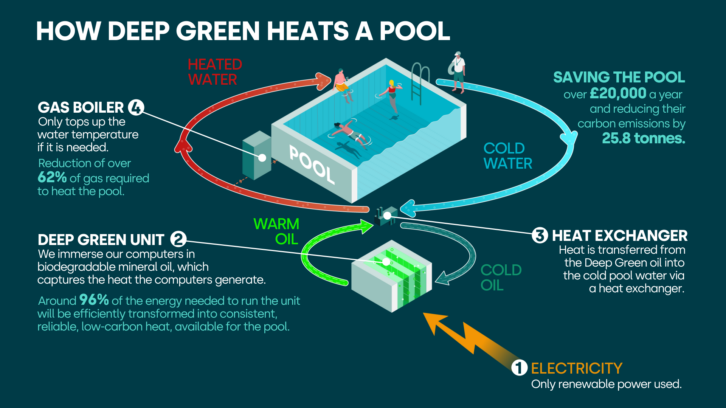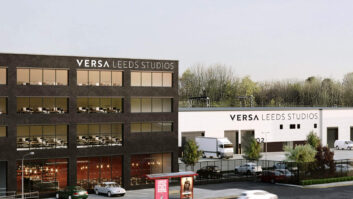London-based post production house Dirty Looks has moved part of its computing and storage requirements into a data centre based in a public swimming pool.
The company has agreed to employ Deep Green’s heat re-use data centre for the next 18 months, including for real-time or overnight rendering and storage.

As the servers work, the heat they generate is captured and used to help heat the swimming pool in Exmouth, Devon.
Around 60 per cent of the required pool heat is supplied by Deep Green’s servers saving the pool over £20,000 and around 25.8 tonnes of carbon emissions a year through reduced reliance on fossil-fuel boilers, said the companies.

By capturing and re-deploying heat for free, Deep Green receives efficient cooling making its computing much less energy-intensive and more affordable, added the companies.

Speaking about the partnership, Tom Balkwill, founder and managing director of Dirty Looks, said, “We are delighted to have led the industry and demonstrated that high-end computing can co-exist with sustainability. Rendering films in data centres that re-capture heat presents a huge opportunity for our sector to benefit the communities we are part of. By cutting the energy bills of swimming pools and lowering fossil-fuel consumption, we are contributing to a healthier and greener local community.”
Mark Bjornsgaard, founder and CEO of Deep Green, added: “We are delighted to have partnered with Dirty Looks to facilitate this groundbreaking ethical rendering project. Currently the UK’s film industry relies on inefficient and energy-hungry data centres. Virtually all the heat they produce is wasted, ejected into the atmosphere, providing no social or environmental good to local communities. If the industry is serious about sustainability, this has to change.”







